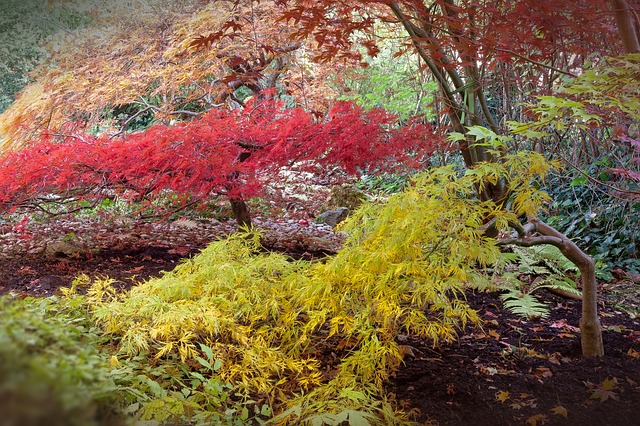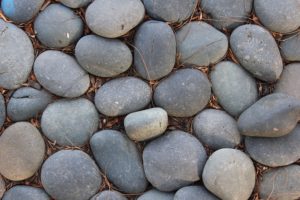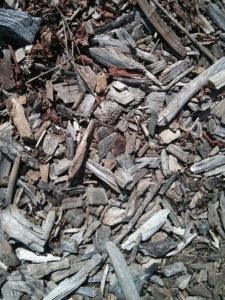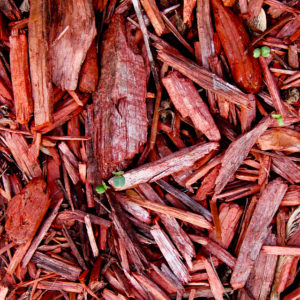
Choosing the Best Mulch
May 7, 2015As the trusted, award winning landscape contractor for York County and surrounding areas, we often get asked the question, “which is the best mulch?” The honest answer is it depends on your unique situation, since you’ll need to consider everything from color and smell, to soil benefits, longevity, stability, and cost.
The benefits to mulching are undisputed and include:
- Moisture retention
- Insulation
- Weed Control
- Nutrient Supplementation
- Controlling Soil Erosion
- Improved Aesthetics
Depending on which is most important to you, your mulch decision will come down to which choice aligns with your goal. For example if your primary focus is to be aesthetically pleasing and preventing soil erosion, you may go with an option such as a stone mulch. If you want superior moisture retention and would like the added soil benefits, you may choose an organic option like shredded hardwood.
Some of the most common mulches are described below, with a few pros and cons to help you with your next mulch decision.
Stone Mulch
 As we mentioned above, rock mulches are superior at preventing soil erosion. They also don’t break down like wood or plant based mulches, so they last longer and don’t need to be replaced as often. Rock mulches are great at absorbing heat and provide good insulation on those cold nights and evenings.
As we mentioned above, rock mulches are superior at preventing soil erosion. They also don’t break down like wood or plant based mulches, so they last longer and don’t need to be replaced as often. Rock mulches are great at absorbing heat and provide good insulation on those cold nights and evenings.- Since rock mulches are more permanent, they’ll be much more difficult to replace than organic mulch if you change your mind. Some shrubs or plants that are more sensitive to heat can also struggle during the hottest days due to the heat retention the stone mulch offers. Heavy rains can shift the pebbles or stones if they aren’t within some kind of trench or contained area. These also tend to cost a bit more up-front, but the long term cost is cheaper since you aren’t redoing the mulch as often as you would with an organic option.
- BONUS** Lava or volcanic rock is also an option that can offer better moisture retention, while not absorbing as much heat from the sun. This option comes with its drawbacks however, since it will take longer for the water to penetrate the soil. This means you may need to user more water when you water your plants.
Pine Bark Mulch
- If you have a perennial area that will likely last for several years and it doesn’t have fruit bearing plants, pine bark mulch is a good option since it doesn’t breakdown as quickly. Pine bark mulch also acts as a great insulator and is an easier mulch to apply. This also could be a great choice for flat walkways or paths since it is easier to spread and isn’t as expensive as other options.
- Pine bark mulch isn’t the best at holding or taking up water, and also is often a bit lighter so it can blow around in windy areas or if a bad storm comes through. This mulch also isn’t the best option for slopes or hilly areas where it can run-off with a rain. It also doesn’t contain as many nutrients as an option like shredded hardwood mulch may.
Wood Chip Mulch
 Isn’t all mulch just wood chips? Yes, but mulch is aged while wood chips are not. This is why chips are lighter in color than true mulch.
Isn’t all mulch just wood chips? Yes, but mulch is aged while wood chips are not. This is why chips are lighter in color than true mulch.- Composed of branches and other parts of the tree (excluding the bark), wood chips are another mulching option. They hold and obtain moisture better than bark mulch, and can do a wonderful job at controlling areas that may get too wet or too dry. They often are the cheapest option, and can sometimes even be a free option.
- You need to be careful of the source of the wood chips, and find out exactly what was used to create the mulch. Some wood chips that come from sources like walnut trees can actually do more harm to your garden than good, since they release chemicals that can inhibit growth. They can also alter your garden acidity level depending on the sources. Wood chips typically contain little to no nutritional value.
Shredded Hardwood Mulch
- Another option that is relatively easy to spread, shredded hardwood mulch lasts longer, is a great choice to help raise your pH levels and make the soil more alkaline as it breaks down, and offers excellent nutrients for your plants and soil. Shredded hardwood mulch is excellent at staying in place, and is a great choice for hills or slopes. It also is easier to plant in if you want to add more trees or shrubs later on than other options like rock mulch.
- Since it neutralizes the soil as it breaks down, it isn’t the best choice for acid-loving plants. It can also compact as it ages which will start to block rain and nutrients from reaching your soil, and will need to be replaced within a year or so.
Cocoa Shell Mulch
- Also known as cocoa hull mulch, this is perhaps one of the most aesthetically pleasing mulches. It also offers a great chocolate fragrance that is a welcome alternative to that typical mulch smell. Easy to work with since they are extremely light, cocoa shell mulch also is a slow decomposer that is a popular choice for smaller beds and herb gardens.
- While the light-weight is great to work with, it also could blow or wash away easier. Depending on how the mulch is made and treated, it could also be toxic to you or your neighbor’s pets. Hot and humid weather like we see in the summers here in York could also allow mold to grow on the surface.
Dyed Mulches
 Dyed mulch is created by shredding wooden shipping pallets, usually made from kiln dried pine, which is then dyed with a water based colorant. So while recycling pallets is good, the water intensive dying process is not so environmentally friendly.
Dyed mulch is created by shredding wooden shipping pallets, usually made from kiln dried pine, which is then dyed with a water based colorant. So while recycling pallets is good, the water intensive dying process is not so environmentally friendly.- Dyed mulches offer a great looking complement to your colorful gardens that can help them “pop.” The actual wood itself lasts for a long time since it doesn’t break down quickly, and also does a good job at keeping down weeds.
- The color fades with the sun and depending on how long the dye sets before it rains, it could speed up the process. This means you may need to replace it yearly if you want to keep that bright color. Colored mulches also don’t offer any nutrients for your plants or soil, and can actually draw nutrients out of the soil.
We hope this blog helps to clear up some of the questions surrounding the best mulch to use for your project. By no means is it an extensive list and you may have questions about mulches not found on this list. We encourage you to feel free to give us a call with any questions, or contact us through the form on our contact page.
Of course we’d be happy to help you spread your mulch once you make the decision, or even add another bed or make recommendations for a bed. Hively Landscapes is the choice for landscape design, installation, and maintenance. Feel free to browse our projects on our website, Facebook page and Houzz page if you’d like to see some samples of our work.